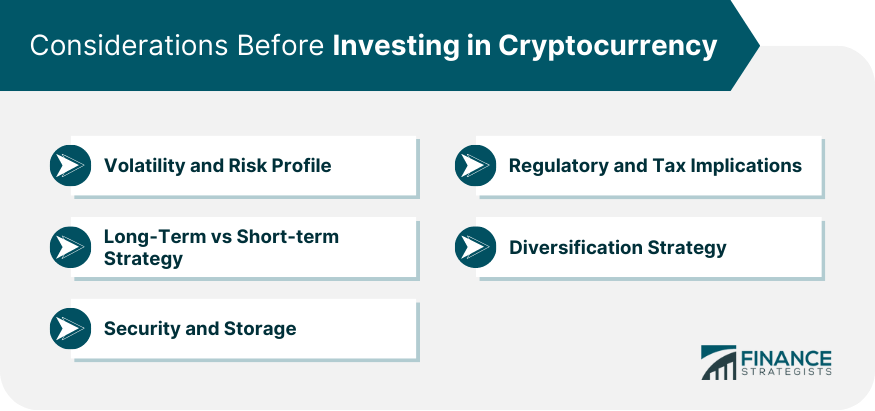Cryptocurrency is a form of digital or virtual currency that utilizes cryptography for security, making it resistant to counterfeiting. It operates on a decentralized platform, typically a blockchain. Initially intended as a decentralized medium of exchange, cryptocurrency has also been adopted as a store of value, a unit of account, and even as a means of raising capital through Initial Coin Offerings (ICOs). To trade, one would need to sign up on a cryptocurrency exchange, where cryptocurrencies can be bought or sold against other digital assets or fiat currencies. Traders use various strategies, ranging from long-term holding to short-term speculative trading, leveraging market volatility. As with any form of investment, trading cryptocurrencies carries risks, and it's imperative for individuals to conduct thorough research and seek advice from financial experts before diving in. Embarking on your cryptocurrency journey starts with understanding the fundamentals, such as the mechanics of crypto transactions and the blockchain technology behind them. Being well-informed about market dynamics, key terms, and recent developments ensures you're making informed decisions. Subscribing to crypto news outlets and forums can further enhance your knowledge base. Clearly define your intentions, be it short-term trading or long-term holding. Given the volatility of cryptocurrencies, decide on an amount you're willing to invest. Having a clear financial blueprint will guide your crypto investments, helping to avoid impulsive decisions. Periodic reassessments of these goals, especially in a rapidly shifting market, can be beneficial. Selecting a secure wallet, whether software-based or hardware, is essential for safeguarding your digital assets. Ensure it's compatible with the cryptocurrencies you're targeting. Regular backups and secure storage of recovery keys or phrases will further protect your assets. With multiple wallet options available, reviews and recommendations can be beneficial. Platforms like Coinbase or Binance offer services to buy and sell cryptocurrencies. Choose an exchange known for its security, user-friendliness, and reasonable fees. Given the vast number of exchanges available, user reviews and expert insights can aid in making an informed choice. Always ensure the exchange aligns with your investment goals and strategy. Upon selecting an exchange, you'll undergo a registration process, often involving personal details for 'Know Your Customer' regulations. This verification ensures transparent and trustworthy transactions. Most platforms have robust security measures, but always ensure your account has added layers of protection, such as strong, unique passwords. Once registered, you can fund your exchange account using various methods such as bank transfers, credit cards, or even peer-to-peer transactions. Each method may have its fee structure, so it's essential to be aware of the costs. Ensure the security of transactions, and remember that while some deposit methods might be instant, others may take some time. With your account funded, you're set to purchase your chosen cryptocurrency. Most exchanges provide user-friendly interfaces for market orders or allow more control with limit orders. Always double-check transaction details, considering the volatile nature of crypto prices. Keep in mind that transaction fees might apply based on your chosen payment method. Moving your cryptocurrency to a personal, secure wallet off the exchange adds a layer of security against potential hacks. When making transfers, accuracy is important, so always double-check wallet addresses. Initial test transfers, especially when dealing with substantial amounts, can ensure a smooth transaction process. Keeping a close eye on your crypto portfolio's performance is vital. Use tracking tools or dedicated apps to get real-time insights. Staying updated with market news, trends, and regulatory changes can give you a clearer picture of the crypto environment, helping you make timely investment decisions. Set clear criteria for when you might want to sell or convert your cryptocurrency back to fiat. This could be based on achieving certain profit margins, changing market conditions, or personal financial situations. Regularly revisiting and refining this strategy ensures it remains aligned with your broader financial goals. Many financial experts advise limiting cryptocurrency investments to a range of 1% to 5% of one's total net worth. This recommendation arises from the inherent volatility and unpredictability of the crypto market. When deliberating how much to allocate to cryptocurrencies within your portfolio, it's essential to strike a balance that aligns with both your financial goals and risk appetite. Committing more funds than you're comfortable losing could lead to undue stress and potential financial strain. A moderate exposure to cryptocurrencies can, for some, refine the risk-reward dynamics of a well-diversified investment portfolio. Cryptocurrencies are known for their price volatility. In a short span, the value of a particular cryptocurrency can surge dramatically or crash. Potential investors should assess their risk tolerance and understand that while there's potential for high returns, the stakes for significant losses are equally real. It's essential to ensure that you're emotionally and financially prepared for these fluctuations. Decide on your investment horizon before diving into the cryptocurrency market. Are you looking for quick profits, or are you willing to hold onto your assets for several years? A short-term approach might involve frequent trading based on market trends and can require a deep understanding of market analytics, technical charts, and timely decision-making. In contrast, a long-term perspective, often termed "HODLing" in the crypto community, involves holding onto your crypto assets through market highs and lows, betting on their long-term value. The digital nature of cryptocurrencies means they are susceptible to hacks if not securely stored. Consider the best methods for safeguarding your investments, be it through hardware wallets, reputable crypto exchanges, or other security measures. Always keep backup copies of essential keys and consider implementing two-factor authentication for additional protection. The regulatory environment for cryptocurrencies varies by country and is continually evolving. Some nations embrace crypto, while others have strict regulations or outright bans. Familiarize yourself with the legalities in your jurisdiction to ensure you're compliant. Additionally, understand the tax implications of trading, holding, or mining cryptocurrencies to avoid potential legal issues. Diversifying your cryptocurrency portfolio can mitigate risks. While Bitcoin and Ethereum are the most well-known, numerous altcoins have potential for growth. However, it's vital to research and understand the prospects and challenges of each before investing. Cryptocurrency presents a revolutionary form of digital currency that operates on decentralized platforms secured by cryptography. Its evolution from a medium of exchange to a multifaceted financial instrument, including a store of value and capital raising through ICOs, underscores its growing significance. To engage in cryptocurrency investment, prioritize research and education, clearly define goals, and secure a compatible wallet. Choosing a reputable exchange aligned with your strategy and maintaining robust security measures are vital. Monitoring your portfolio, staying updated on market trends, and devising an exit strategy is crucial. Amid considerations of risk tolerance, investment horizon, security, regulations, and diversification, a balanced and well-informed approach is essential. Cryptocurrency investment, while potentially rewarding, necessitates a balanced approach that aligns with financial goals and risk appetite, promoting the integration of this innovative asset into a diversified portfolio.What Is Cryptocurrency?
How to Invest in Cryptocurrency
Research and Education
Determine Your Investment Goals
Choose a Cryptocurrency Wallet
Pick a Reputable Cryptocurrency Exchange
Register and Verify Your Account
Deposit Funds
Buy Cryptocurrency
Transfer to Wallet (Optional)
Monitor Your Investment
Consider an Exit Strategy

How Much Should You Invest in Cryptocurrency?
Considerations Before Investing in Cryptocurrency
Volatility and Risk Profile
Long-Term vs Short-term Strategy
Security and Storage
Regulatory and Tax Implications
Diversification Strategy

Conclusion
Cryptocurrency Investing for Beginners FAQs
Cryptocurrency investing for beginners refers to the process of entering the digital currency market with limited experience. It involves purchasing, trading, or holding cryptocurrencies like Bitcoin and Ethereum as a potential investment opportunities.
Investors buy cryptocurrencies at a certain price and sell them when the price increases, aiming to make a profit. Some also use trading strategies to capitalize on price fluctuations.
Yes, cryptocurrency investing carries risks due to its high volatility and regulatory uncertainties. Prices can change rapidly, leading to potential gains or losses.
Successful cryptocurrency investing can lead to substantial profits, especially during periods of significant price appreciation. Some investors have achieved substantial returns over the years.
Beginners can start by researching and learning about different cryptocurrencies, understanding blockchain technology, and choosing reputable cryptocurrency exchanges. It's crucial to start with a small investment, diversify, and stay updated on market trends.
True Tamplin is a published author, public speaker, CEO of UpDigital, and founder of Finance Strategists.
True is a Certified Educator in Personal Finance (CEPF®), author of The Handy Financial Ratios Guide, a member of the Society for Advancing Business Editing and Writing, contributes to his financial education site, Finance Strategists, and has spoken to various financial communities such as the CFA Institute, as well as university students like his Alma mater, Biola University, where he received a bachelor of science in business and data analytics.
To learn more about True, visit his personal website or view his author profiles on Amazon, Nasdaq and Forbes.















